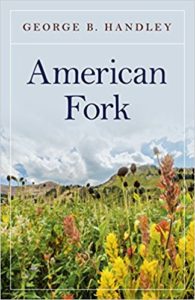 Having lived in Chile as a Mission President, the description of this book really intrigued me. We arrived in Chile the year of the 40th anniversary of the Golpe Militar when Pinochet came to power. It is still very much an open wound for some with battle lines still drawn, although fading with the passage of time. I had many discussions with LDS and others about the Golpe and the most common phrase used to describe it is: “Es Complicado.” The Golpe is not the central theme of the book but the story that weaves through it is fascinating.
Having lived in Chile as a Mission President, the description of this book really intrigued me. We arrived in Chile the year of the 40th anniversary of the Golpe Militar when Pinochet came to power. It is still very much an open wound for some with battle lines still drawn, although fading with the passage of time. I had many discussions with LDS and others about the Golpe and the most common phrase used to describe it is: “Es Complicado.” The Golpe is not the central theme of the book but the story that weaves through it is fascinating.
Central to the story is the relationship between an angry old botanist, Zachary Harker, and a young returned missionary artist born to a Chilean immigrant LDS mother, Alba Powell. Both are LDS. Powell is faithful while Harker is disaffected and often rude and dismissive of all things Mormon. These differences catalyze a yearning in each that leads to healing of past wounds that both carry. Their unlikely and mutually transformative relationship explores ecology, church culture, international politics, gender, and tolerance.
Without disclosing the spoilers Alba learns to see and share Harker’s inexpressible pain. As their friendship develops, she reflects on her family’s history with a father she never knew, being “disappeared” in Chile during the Golpe. Alba’s journey to Chile, searching for seemingly unanswerable questions are among the most poignant passages. She is told as she searches for answers: “People here worry that if we get too serious about unearthing the sins of the Pinochet dictatorship, we will ruin our chances for a civil society, that we will go back to fighting the same battles as before, continually living in a divided world of competing and irreconcilable worldviews.”
Harker’s pain is dealt with by distancing himself from the Church. But Alba senses there is more as she paints the pictures for his book of the flora and fauna where he comes to life. The compelling element of this book is how it deals with the theology of suffering, something we don’t talk enough about in the Church.
